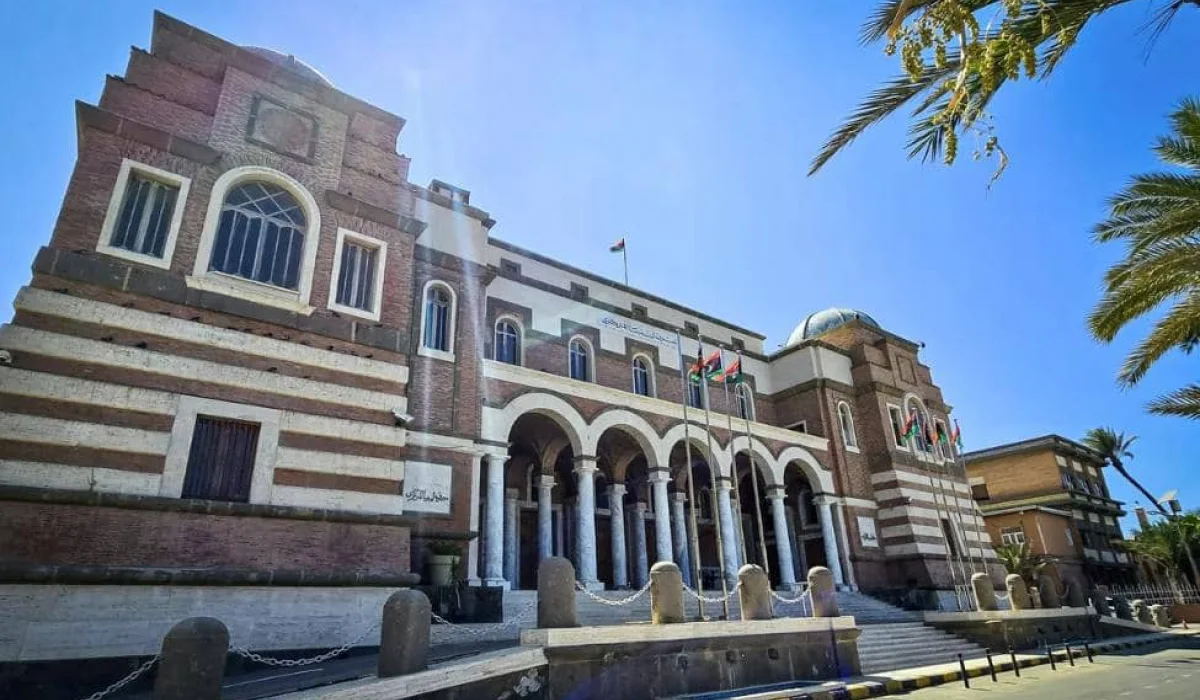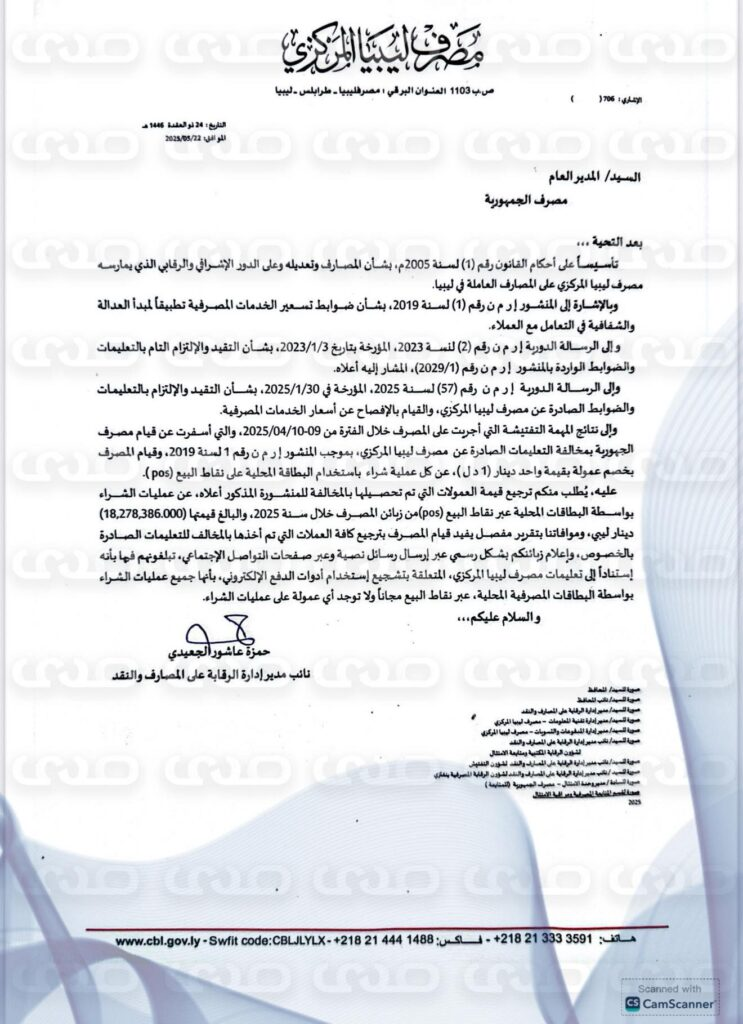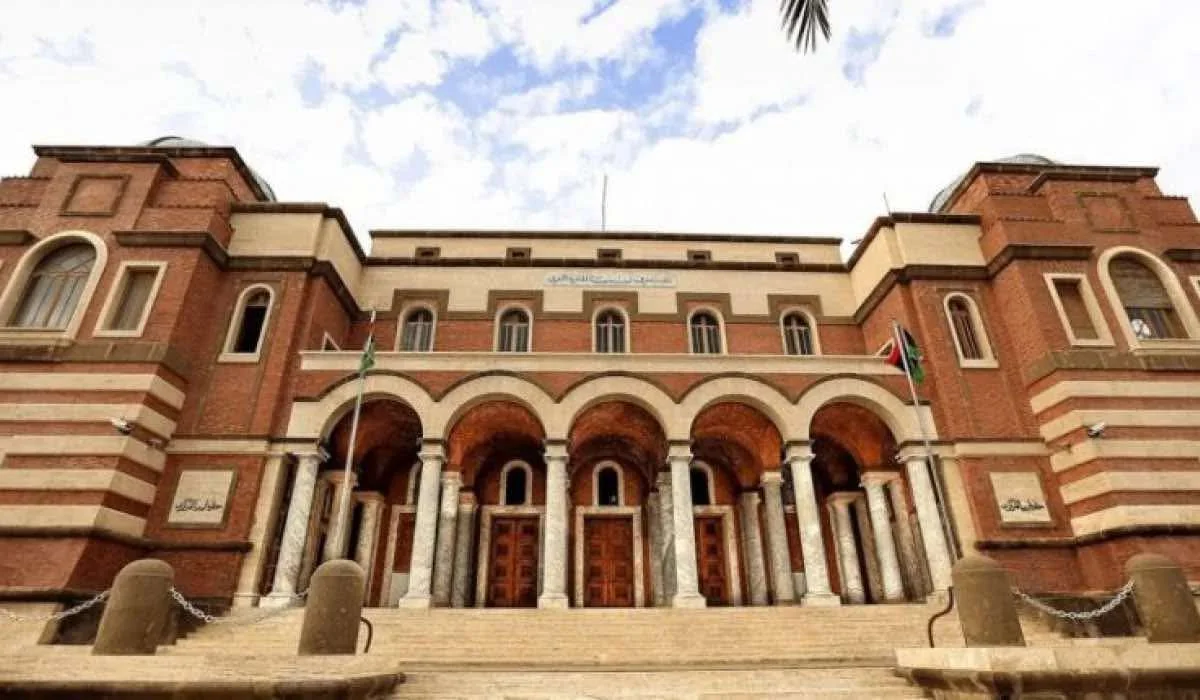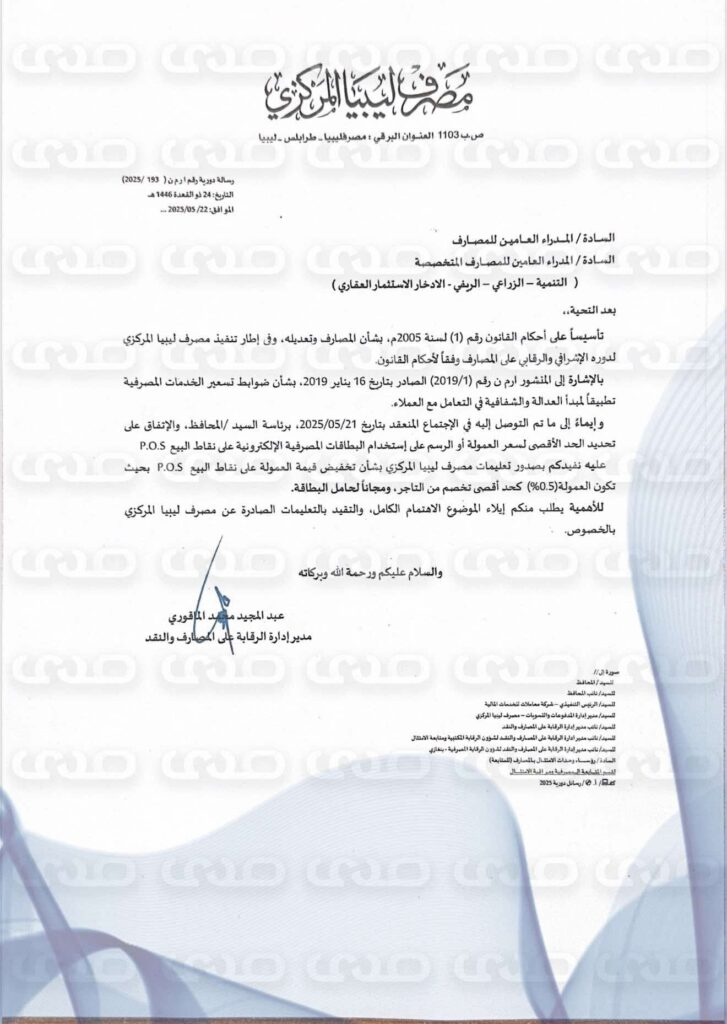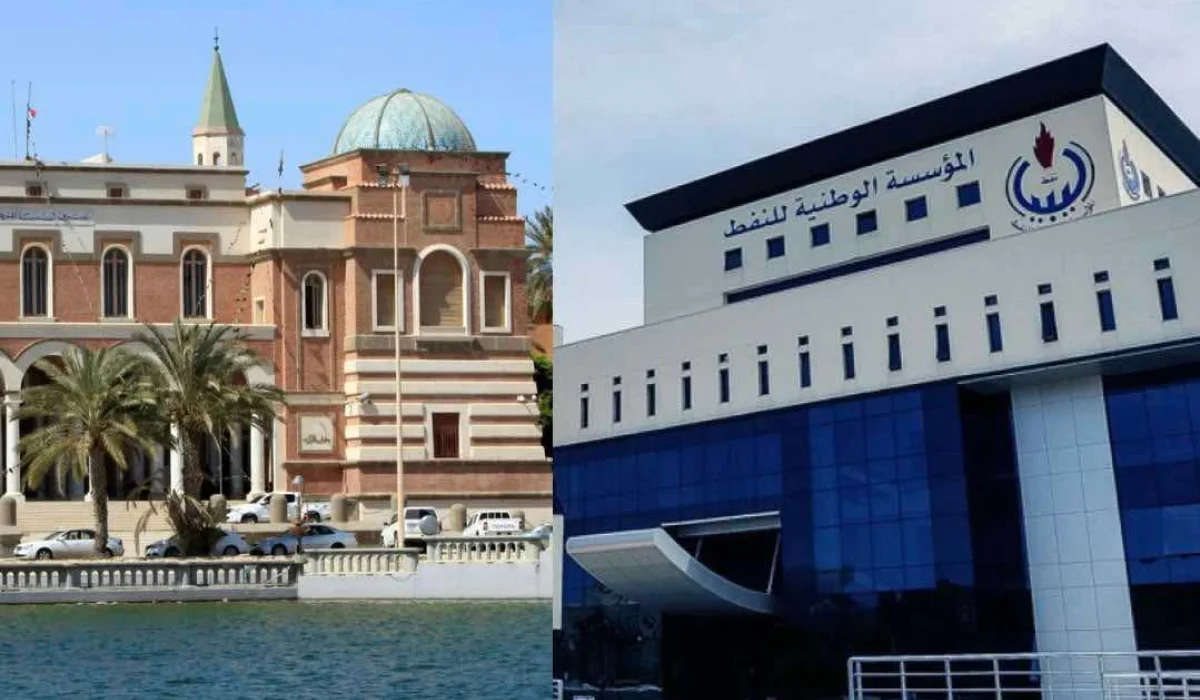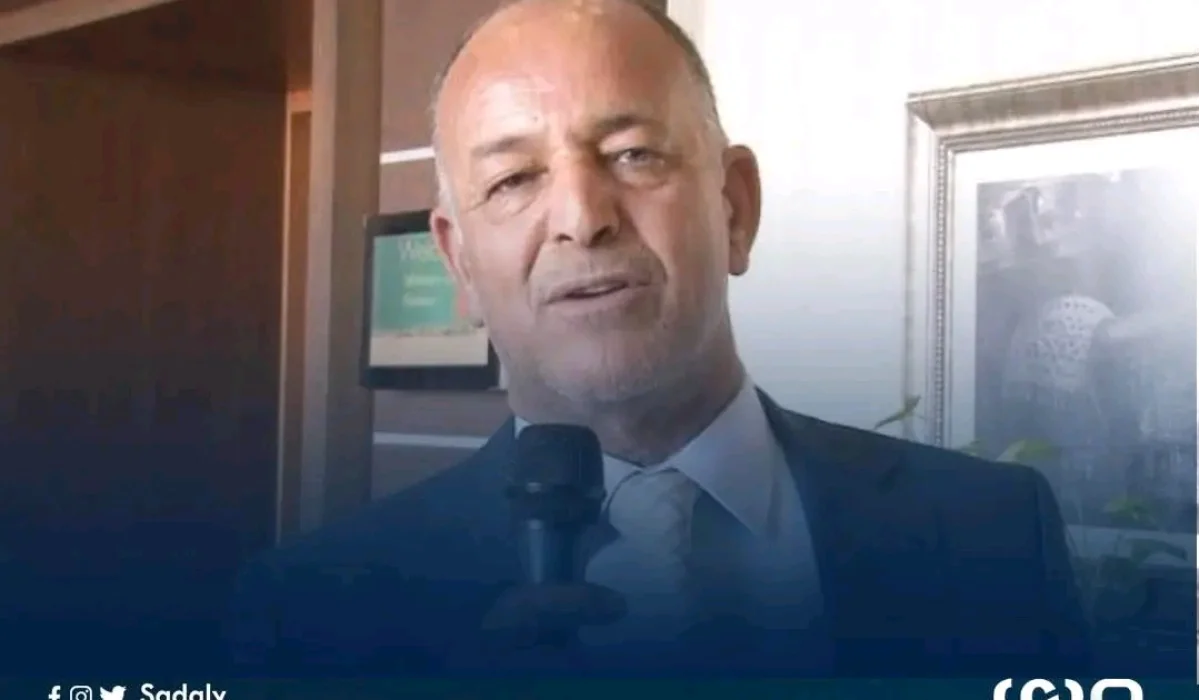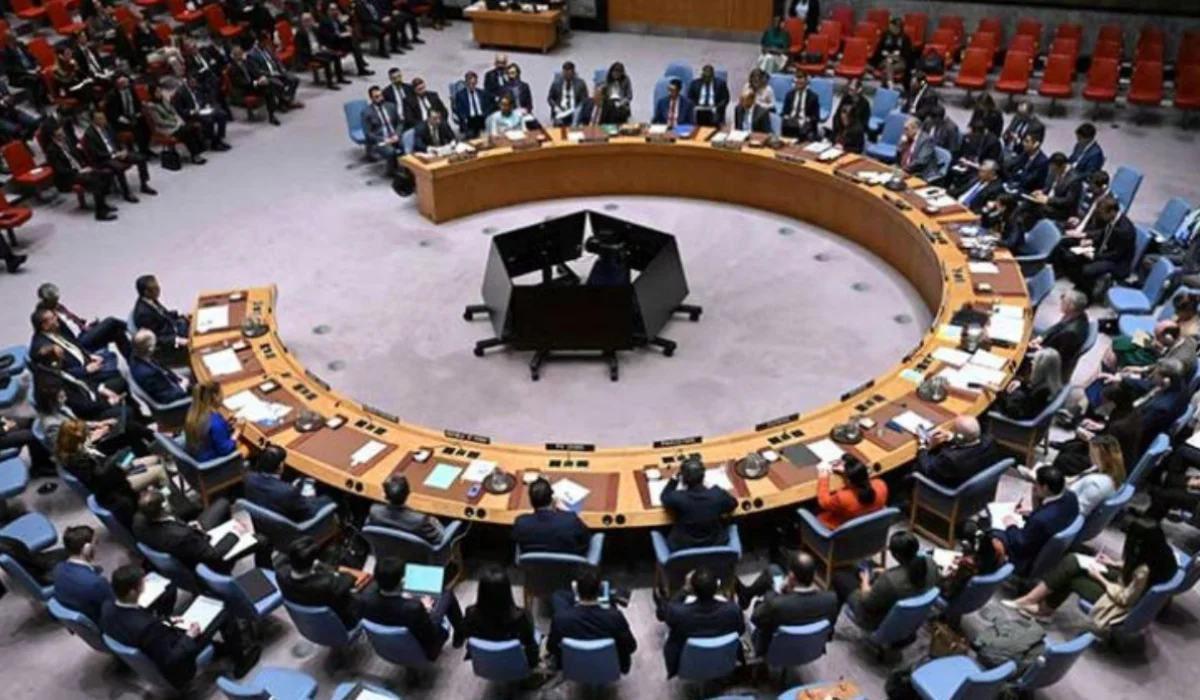The head of the Accounting Department at the Libyan Academy for Postgraduate Studies, Abubakr Abu Al-Qasim wrote an article entitled: “When You Are Kicked Out the Door, Don’t Try to Climb in Through the Window — That Fall Will Be Deafening!!”
“This morning, we came across a fabricated report claiming that the Central Bank re-evaluated its gold reserves on 31/12/2024 based on the current market price instead of the historical cost. Up to this point, the news is true — this is indeed a fact. However, the fabricated report added that the Government of National Unity instructed the Central Bank to take this step in order to seize the revaluation profits for the government. This is where the political exploitation of the report lies — this is where poison is slipped into the honey — and this is entirely false.
Let me recount the story as it is, from a purely technical accounting perspective, with no other aim than to enlighten public opinion.
First: It has been verified that this report did not originate from the Crisis Group at all. Upon direct communication with them, it was confirmed that they did not issue such a report. It is fabricated and has no connection to them whatsoever.
Second: Successive reports from the Audit Bureau, as well as a report from Deloitte Global (one of the Big Four accounting firms), confirmed that the Central Bank’s gold reserves were valued at historical cost and had not been re-evaluated based on current market prices.
This contradicts all international accounting standards, whether IFRS or even IPSAS (the International Public Sector Accounting Standards), which are applied in central banks across the world. Their report recommended correcting this error and revaluing based on current prices instead of historical cost.
Third: This step should have been taken long ago to present a fair financial position and performance of the Central Bank, and to demonstrate a high level of transparency to the public. This was not done by the former governor, despite Deloitte’s report and the Audit Bureau’s repeated calls for correcting this distorted situation.
Fourth: On 31/12/2024, the new management at the Central Bank responded to the Audit Bureau’s and Deloitte’s recommendations and corrected this distortion in the gold reserve value on the Bank’s financial statements by re-evaluating the gold based on current prices, in accordance with international accounting standards. Naturally, this step will result in significant profits amounting to billions, referred to as revaluation gains, due to the fact that such a step had never been taken since the Bank’s establishment. It is an excellent corrective measure that must be taken as part of the reforms led by the current administration — a step that should be appreciated and that should encourage the Central Bank to undertake further reforms.
Fifth: The Central Bank is not under the control of the government. It is an independent technical institution, and the government has no authority over it whatsoever. What the Central Bank of Libya did was a technical accounting procedure required by custom and international standards. As for the claim that the government could exploit these revaluation profits to increase spending or loot them — that is laughable. It is closer to comedy than to reality and is entirely unimplementable. It is simply political manipulation for the sake of political rivalries.
Sixth and finally: Who fabricated this report? What do they stand to gain from it? And why at this particular time? Don’t you agree with me that it was created by the same people who were shown out the back door of the Central Bank after the country suffered from their recklessness, the manipulation of the Libyan dinar’s value, and the collapse of the banking system — and now the same people want to sneak back in through the window as an alternative to a government they believe is on the verge of falling?
When you are kicked out the door, don’t try to climb in through the window — that fall will be deafening.“








